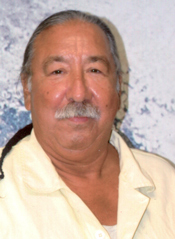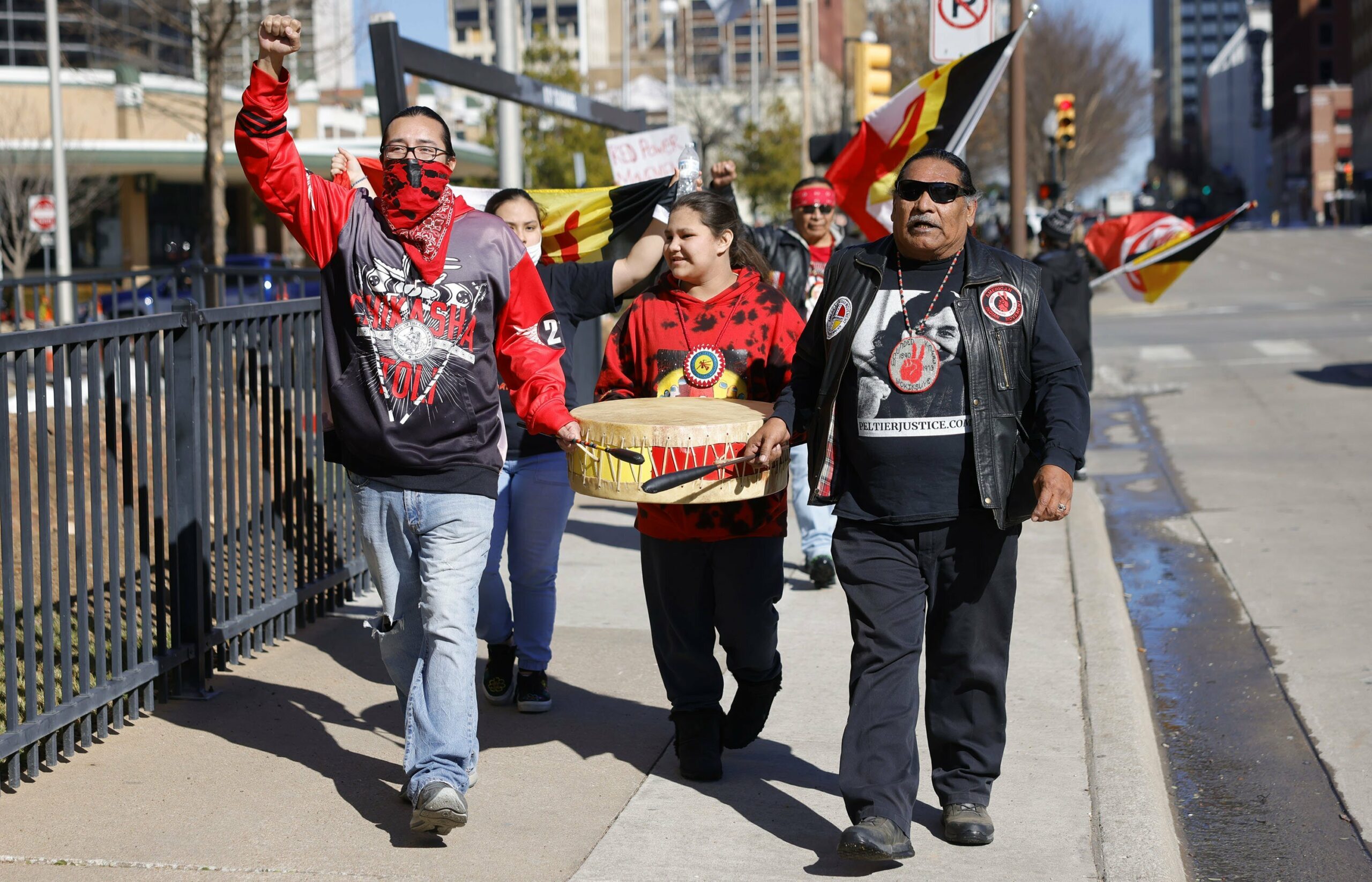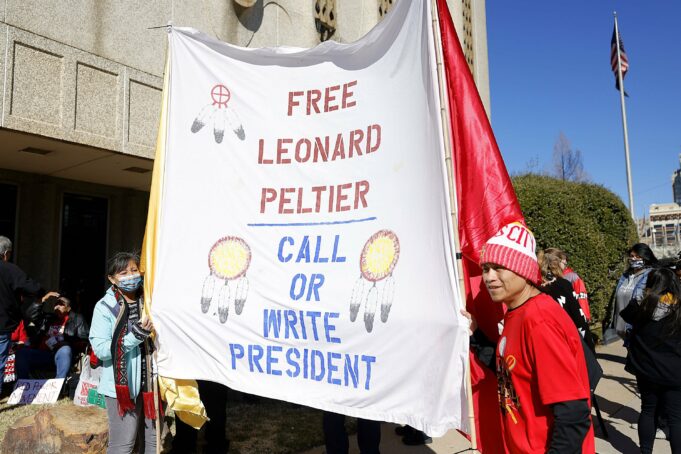For 46 years, Leonard Peltier, a 77-year-old Anishinabe-Lakota Native American activist, has maintained his innocence. He has been imprisoned for 46 years for a crime he says he did not commit. Living under abysmal conditions at Florida’s Coleman maximum security federal penitentiary, the political prisoner tested positive for Covid-19 on Jan. 28.
“COVID has turned Coleman Prison back to the Dark Ages. I remember a time at Marion USP when I was put in solitary for so long, when 72 hours could make you start to forget who you were. I once wrote down who I was on the concrete floor under my bed, so if I forgot, I could read it back to myself.

I traded my last cigarette for a pencil. I’d rush to the door when a guard left the meager plate of food, just to see a glimpse of another human being—even if it was one that hated me, it was another human and good for my mind for a minute,” Mr. Peltier wrote in a recent statement obtained by the Huffington Post.
“I’m in hell, and there is no way to deal with it but to take it as long as you can. I cling to the belief that people are out there doing what they can to change our circumstances in here. The fear and stress are taking a toll on everyone, including the staff. You can see it in their faces and hear it in their voices. The whole institution is on total LOCKDOWN,” he continued.
Outside of Covid-19, Mr. Peltier also suffers from diabetes, hypertension, a heart condition, and abdominal aneurysm. The activist elaborated on the prison’s conditions, saying that “in and out of lockdown last year at least meant a shower every third day, a meal beyond a sandwich wet with a little peanut butter—but now with COVID for an excuse, nothing. No phone, no window, no fresh air—no humans to gather—no love ones voice. No relief.
“Left alone and without attention is like a torture chamber for the sick and old,” he expressed.
Mr. Peltier is a member of the American Indian Movement. He was convicted of involvement in the killing of two FBI agents, Jack Coler and Ron Williams, in a shootout on the Pine Ridge Reservation in South Dakota on June 26, 1975, during a period of intense violence on the reservation, according to Democracy Now. Mr. Peltier’s lawyer and former federal judge Kevin Sharp said his client’s “case was riddled with misconduct, including witness intimidation and withholding exculpatory evidence.”
The lawyer told Democracy Now, “Peltier’s health, age and unfair trial make him the perfect candidate for executive clemency. The legal remedies are no longer available. … Now it’s time for the (Bureau of Prisons) and the president of the United States to fix this and send him home.”
The 1975 shootout occurred three years after the death of J. Edgar Hoover. Under Mr. Hoover, the FBI’s Counterintelligence Program (COINTELPRO) targeted civil rights and antiwar organizations, including the American Indian Movement, which was actively protecting elders on the Pine Ridge Reservation, according to Democracy Now.
When Mr. Sharp first found out about Mr. Peltier’s case, what he saw was “shocking,” with constitutional violations continuing to stack up.
“I was outraged that this man was still in prison,” he said to Democracy Now.

On Feb. 7, dozens of supporters for Mr. Peltier gathered at the Federal Building in Rapid City, S.D., to spread awareness of his condition and case.
Activists and supporters have been asking for executive clemency for years. Before their deaths, Nelson Mandela and Bishop Desmond Tutu pleaded with the U.S. government. Jesse Jackson, Harry Belafonte and the Honorable Minister Louis Farrakhan have also spoken out on behalf of Mr. Peltier.
“That poor man has been in prison for a long, long time. When are you going to set him free? You have given men like Leonard Peltier, and others, life sentences,” Minister Farrakhan said in Part 24 of his 2013 lecture series, “The Time and What Must be Done.”
In late 2000, President Bill Clinton promised to give Peltier’s clemency application “a looksee” on WBAI radio in New York City, according to Democracy Now. But the former president denied clemency, as did Presidents George W. Bush, Barack Obama and Donald Trump.
Retired U.S. Attorney James Reynolds, who was one of the federal prosecutors that put Mr. Peltier in prison, wrote to President Obama in 2017, “Leonard Peltier’s conviction and continued incarceration is a testament to a time and system of justice that no longer has a place in our society. I have realized that the prosecution and the continued incarceration of Mr. Peltier was and is (unjust).”
He also wrote to current President Joe Biden last year asking for executive clemency.
Mr. Peltier’s case has garnered supporters in Congress, with Senators Brian Schatz (D-Hi.) and Patrick Leahy (D-Vt.) writing letters to President Biden demanding and urging for the activist’s release.
On Feb. 2, Huffington Post reporter Jennifer Bendery asked White House press secretary Jen Psaki, “Does the president know who Leonard Peltier is?” Ms. Psaki replied, “I’m sure he does, but I have not discussed it with him.”
“Where are our human rights activists?” Mr. Peltier questioned, in his statement.
“You are hearing from me, and with me, many desperate men and women! They are turning an already harsh environment into an asylum, and for many who did not receive a death penalty, we are now staring down the face of one!” he expressed.
“Help me, my brothers and sisters, help me, my good friends.”
Final Call staff contributed to this report.













